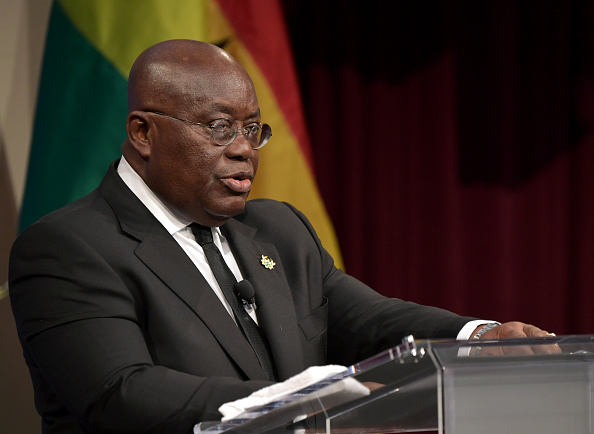Accra – Ghanaian President Nana Akufo-Addo has defended a decision to seek International Monetary Fund (IMF) help, saying it was needed to repair public finances after the double shock of the pandemic and the war in Ukraine.
The decision has stoked fierce debate in Ghana, where Akufo-Addo has come under fire from critics who say his government reversed its position on the IMF after initially saying a new tax would help revive the economy.
IMF officials are already in the West African country to help “restore macroeconomic stability, safeguard debt sustainability, and promote inclusive and sustainable growth,” according to a statement.
Swearing in new envoys in the capital, Accra, Akufo-Addo said on Thursday the pandemic and the war in Ukraine have hit the global economy with Africa feeling the pain more.
ALSO READ | Ghana seeks IMF support for ailing economy
“All the countries of the world are working to return themselves to a state of normalcy following the devastating impact of the pandemic of Covid-19 whose effect has been exacerbated by the Russian invasion of Ukraine,” he said.
“In our case, we have decided to seek the collaboration of the International Monetary Fund (IMF) to repair, in the short run, our public finances.”
He said the government would continue to work on medium to long-term structural changes to strengthen the economy.
This is the 18th time Ghana has gone to the IMF for help after completing a three-year arrangement in 2019 which saw $918 million in support.
Earlier this year, Ghana’s parliament approved a new electronic transaction tax which the government says will help raise $900 million in much-needed revenue but which has sparked widespread popular criticism.
ALSO READ | Ukraine war: how Ghana is vulnerable, and what can be done
The so-called E-levy will introduce a 1.5 percent tax on electronic money transfers and transactions, which the government says will help address problems from unemployment to servicing Ghana’s high public debt load.
But for many Ghanaians the tax represents an additional burden as they are already struggling with high living costs heightened by soaring fuel prices due to the Ukraine crisis.
Ghana saw inflation surge to more than 27 percent in May — the highest level in almost two decades.
The president and his ministers also this year cut their own wages by 30 percent, along with other measures they hope will generate $400 million in savings for state coffers.
Follow African Insider on Facebook, Twitter and Instagram
Source: AFP
Picture: Getty Images
For more African news, visit Africaninsider.com


